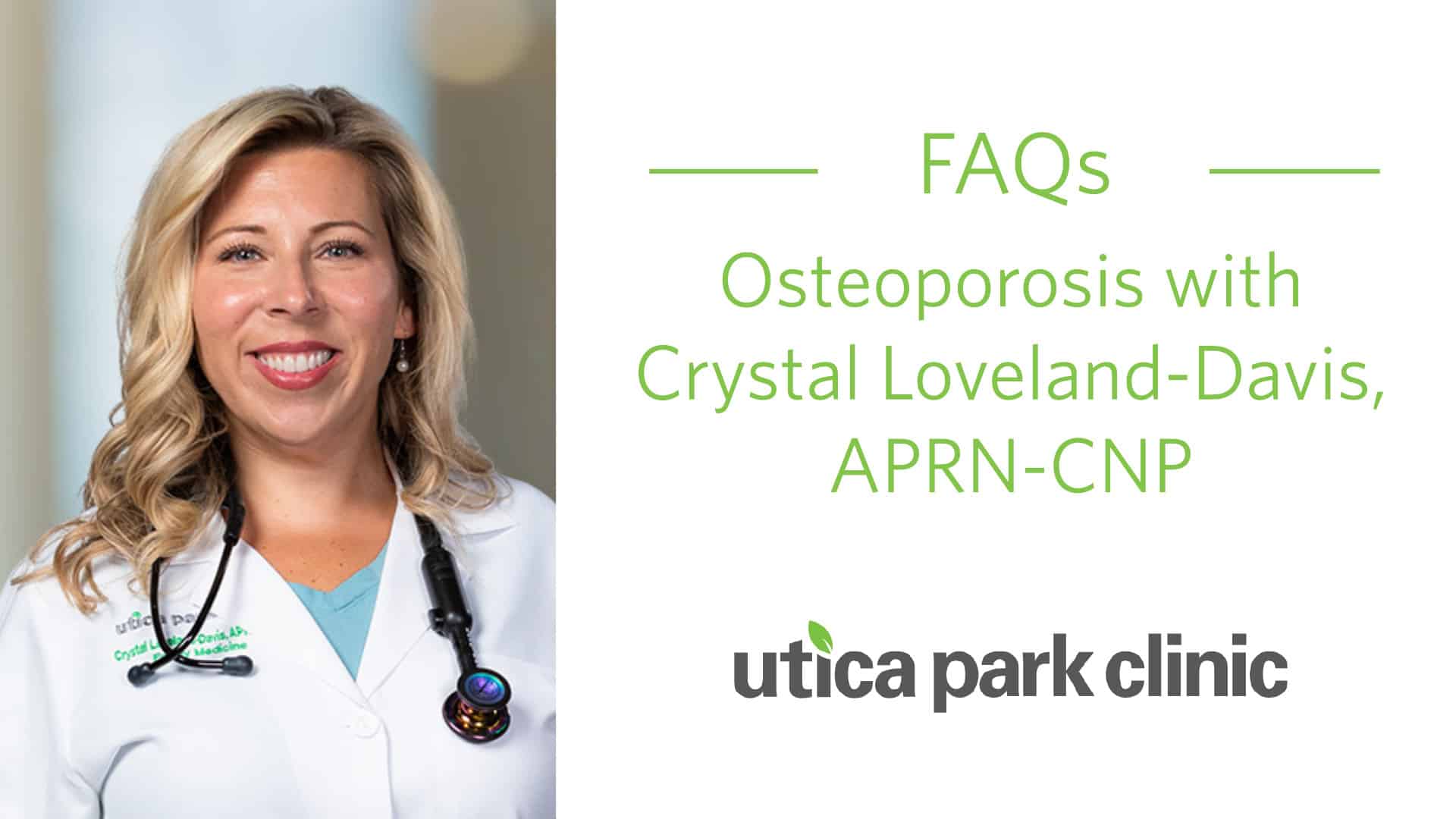Osteoporosis is a disease that weakens your bones. Crystal Loveland-Davis, APRN-CNP, who specializes in bone health and fracture prevention at Utica Park Clinic, answered a few frequently asked questions about preventing and managing osteoporosis.
What are some effective daily self-care strategies for managing osteoporosis?
Factors that contribute to developing osteoporosis include calcium and vitamin D deficiency, lack of exercise, tobacco use and excessive alcohol use. Like most things, prevention is the key!
- Eat a well-balanced diet that includes fruits and vegetables. These foods are high in calcium and Vitamin D.
- Fit in regular, weight-bearing exercise. It’s as simple as walking every day. Not just in the store or to and from the parking lots, but 30 minutes of sustained walking, whether it’s on a treadmill or in your neighborhood, is an effective strategy. Weight-bearing exercise does not imply lifting weights at the gym… your body weight is plenty!
- Stop smoking. Nicotine is the chemical in tobacco that can affect bone health. Nicotine causes small blood vessels in the extremities to constrict or narrow. Regular tobacco use will cause long-term damage and lead to vascular disease.
- Limit alcohol use. Our bones undergo a process known as “remodeling” throughout life. Bone is tissue, just like skin or other organs. Long-term alcohol use, beginning in teenage years, interferes with the production of cells known as osteoblasts, which are like “baby bone cells”. These osteoblasts must mature into osteocytes (“adult bone cells”) to strengthen bones throughout life.
Are there any natural supplements or remedies that have been shown to support bone health and reduce the risk of osteoporosis?
Essential nutrients that support bone health include calcium, vitamin D3, vitamin K2, resveratrol, magnesium, zinc, phosphorus, and collagen peptides, each playing a key role in bone formation, strength, and maintenance. Be sure to check your multivitamin label for these ingredients and their percentage of the recommended daily allowance (RDA). Many over-the-counter bone health supplements combine multiple nutrients, so it’s important to review labels carefully to avoid unintentional over-supplementation.
What is the recommended calcium and vitamin D intake for individuals aiming to prevent osteoporosis?
For adults ages 18 to 50, the recommended daily intake of calcium is 1,000 mg, while those over age 50—particularly postmenopausal women and men over 70—should aim for 1,200 mg per day to help maintain bone strength and reduce the risk of osteoporosis. It’s best to obtain calcium through food sources when possible, and it is best absorbed in doses of 500 mg or less at a time.
For vitamin D, adults aged 18 to 50 are advised to get at least 600 IU per day, while those aged 51 and older should aim for 800 to 1,000 IU daily. Vitamin D is a fat-soluble vitamin, so it is best to consume it with a meal to improve absorption.
Talk to your provider about routine testing and bone density scans in addition to the management and prevention of osteoporosis. Crystal is accepting new patients; to schedule an appointment, click here or call 918-579-5500 to learn more.

